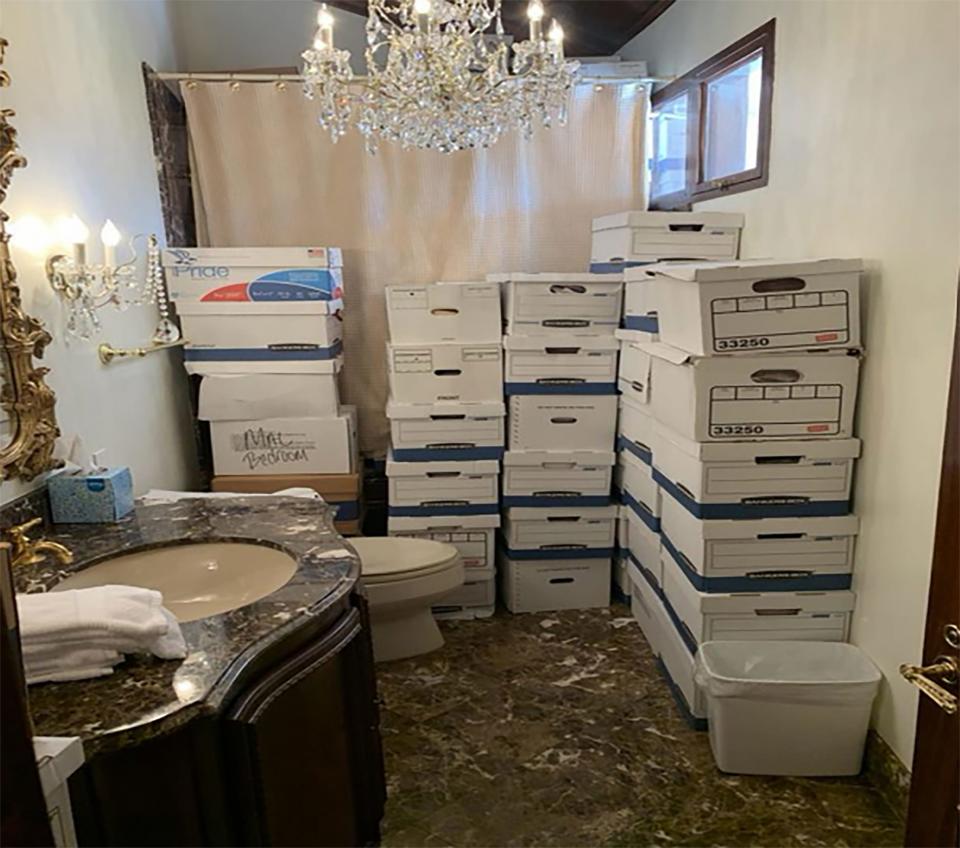Judge Aileen Cannon rejects Trump's ask in documents case, clashes with prosecution
The prosecutor and judge in Donald Trump's classified document case just can't get along.
Even when U.S. District Judge Aileen Cannon sided with Justice Department special counsel Jack Smith on Thursday and rejected Trump's bid to dismiss the charges for hoarding classified documents, Cannon and Smith seemed at odds. The Trump-appointed judge described a related request from Smith as “unprecedented and unjust,” and she tartly noted Smith is free to appeal her decisions if he doesn't like them.
Smith has threatened to have a federal appeals court review Cannon’s proposed jury instructions for the trial for being wrong and too favorable to Trump.
The dispute represents at least the fourth conflict between the prosecutor and judge in the high-profile case, with two reversals of Cannon rulings already from the 11th U.S. Circuit Court of Appeals.
Legal experts say Smith might have to ask the appeals court to review Cannon’s proposed jury instructions because they favored Trump’s position in the case.
An even more provocative step would be for Smith to try to remove Cannon from the case, a rare move that some legal experts say is justified. Changing judges could postpone the trial until after the November election.
Trump faces 40 charges of retaining national defense documents and concealing about 100 records with classified markings at his Mar-a-Lago resort after leaving the White House. He has pleaded not guilty.
What role does the Presidential Records Act play in the case?
The latest showdown focuses on the Presidential Records Act (PRA), a statute adopted after Watergate that designates nearly all of a president’s documents government property to be stored at the National Archives after an administration ends. Exceptions are made for personal records such as birthday cards.
Trump contends he converted the classified records to personal documents before leaving the White House in 2021, so any dispute should be handled in civil court under the PRA rather than through criminal charges. Trump had previously claimed without evidence that the documents discovered at Mar-a-Lago by the FBI were potentially planted there by government agents.
Prosecutors say the PRA has nothing to do with the case and charged him with 32 counts of “willfully retaining” and “failing to deliver” national defense documents in violation of the Espionage Act. Cannon on Thursday refused to dismiss the charges, ruling the charges "make no reference to the Presidential Records Act, nor do they rely on that statute for purposes of stating an offense."

Dispute over the Presidential Records Act could lead to another appeal
The lingering dispute over the PRA is that Cannon asked prosecutors and defense lawyers to weigh in on two possible jury instructions for the trial. Both of Cannon's proposals echoed Trump’s position, with one saying courts and juries can’t review a president’s decision to categorize administration records as “personal.”
Smith had asked Cannon to rule “promptly” on her view about the PRA, which she did. But she refused to finalize the jury instructions before Trump’s defense presents its case at trial. To finalize jury instructions before the defense presentation would “unprecedented and unjust,” Cannon wrote.
In reference to the jury instructions, Cannon replied in her Thursday order that “any party remains free to avail itself of whatever appellate options it sees fit to invoke.”
Some legal experts said Smith should ask the appeals court to review Cannon’s lack of ruling on the jury instructions.
Neal Katyal, a former acting U.S. solicitor general, said Smith has no choice but to ask the appeals court to review her proposed jury instructions.
"Judge Cannon just rejected Trump's bogus Presidential Records Act defense, but only for now," Katyal wrote on X. "I think Smith has no choice but to go to the 11th Circuit" to ask for a review.
Joyce Vance White, a former U.S. attorney, suggested the best strategy for Smith might be to ask Cannon to withdraw from the case because she is "straight off the rails."
"The normal rules don't seem to apply," she wrote on X.

Federal appeals court has already overturned Cannon twice
Prosecutors have already asked the 11th U.S. Circuit Court of Appeals to intervene a couple of times already.
After the FBI seizure of classified records at Mar-a-Lago in August 2022, Cannon ordered a retired judge called a special master to review the documents for potential personal records. That temporarily prevented investigators from scrutinizing them.
Prosecutors said the seizure resulted from a valid search warrant. Defendants typically don’t get to review evidence after a seizure, but could potentially challenge the evidence at trial.
The appeals court initially overturned part of Cannon’s order and allowed authorities to continue investigating the documents during the special master review. The appeals panel called Trump's argument that he declassified the records and made them personal under the PRA a "red herring."
"In any event, at least for these purposes, the declassification argument is a red herring because declassifying an official document would not change its content or render it personal," the panel wrote.
The Supreme Court refused to review the decision.
Then the appeals court overturned Cannon’s order for the special master and halted the review entirely.
"The law is clear," the three-judge panel of the 11th U.S. Circuit ruled. "We cannot write a rule that allows any subject of a search warrant to block government investigations after the execution of the warrant. Nor can we write a rule that allows only former presidents to do so."
Trump has praised Cannon as "a brilliant and courageous Judge whose words of wisdom rang true throughout our Nation."
Prosecutors oppose Cannon move to publicly name witnesses
Another conflict erupted between Smith and Cannon when she ordered Feb. 6 the public release of names of witnesses in the case, as Trump requested.
Cannon rejected government requests to redact names of witnesses, along with statements they made to the FBI or grand jury, from documents filed publicly in the case.
But Smith argued Feb. 8 that releasing the names publicly could expose witnesses to threats and harassment, as has happened in other Trump cases.
Judges issued gag orders against commenting on witnesses in Trump’s New York civil case, the New York criminal case and the federal election interference case in Washington, D.C. The judge in the civil case, Arthur Engoron, received a bomb threat at his home. The judge in the other federal case, Tanya Chutkan, received death threats.
“There is a well-documented pattern in which judges, agents, prosecutors and witnesses involved in cases involving Trump have been subject to threats, harassment and intimidation,” prosecutors wrote.
The dispute remains unresolved. So far Cannon hasn’t released the names publicly. Legal experts say Smith could appeal any move to unseal witness names.
This article originally appeared on USA TODAY: Cannon, Smith clash in Donald Trump classified documents case
